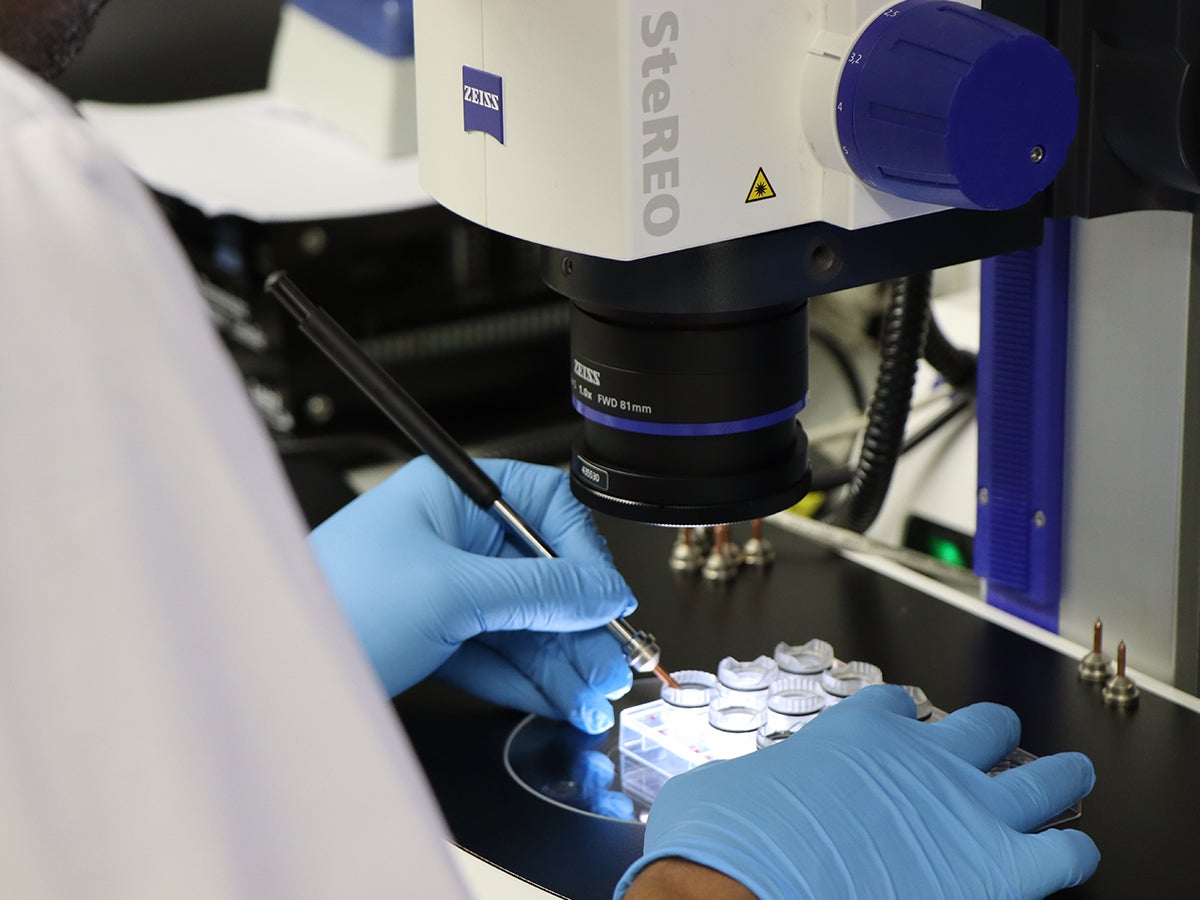
Qatar Biomedical Research Institute (QBRI) is on a mission to improve and transform healthcare. This national center of excellence under Qatar Foundation (QF)’s Hamad Bin Khalifa University (HBKU), is tackling the nation’s health priorities through translational research that turns its new scientific discoveries into life-saving therapies and meaningful health outcomes.
At its state-of-the-art core facilities, QBRI’s translational biomedical research focuses on innovation in the prevention, diagnosis, and treatment of diabetes, neurological disorders, as well as cancer and immunity. Many of QBRI’s research projects have already yielded invention disclosures that have associated intellectual property rights, including patent, trademark, and trade secret.
QBRI’s growing impact
A clear indicator of the institute’s impactful translational research is the exponential growth in the number of disclosures - which represents the first official recording of an invention. There has been an increasing number of disclosures since QBRI’s inception, reaching the highest level to date in 2020 with 32 disclosures of novel ideas.
“An increasing number of invention disclosures is certainly a notable achievement for QBRI, but the real importance is how these inventions can translate into benefits for the healthcare system and population of Qatar and the world at large,” says John McEntire, Director of Industry Development and Knowledge Transfer (IDKT) office at Qatar Foundation Research, Development, and Innovation. “It is the quality of the disclosures and the technology readiness level of the inventions that is most significant. That is what raises the chance of research efforts leading to commercialization opportunities, thereby maximizing the value and impact of the work done by research teams.”
Why is commercialization important?
There are several reasons for the growing focus on commercializing translational research. Firstly, it is a pathway to funding: having more intellectual property (IP) registered raises the researcher’s profile and that of the institute. Secondly, it leads to impact, allowing QBRI’s tools, discoveries, or new IP to improve the healthcare system and ultimately, people’s quality of life. It is also fully aligned with Qatar’s efforts to grow a knowledge-based economy. When commercialization activities successfully lead to a new startup, it creates jobs and helps to develop local capacity in niche fields.
Biomedical commercialization differs from technological commercialization, however. It endures long product development cycles, requires significant capital and deep technical expertise.
The Qatar Foundation ecosystem
QBRI is a part of QF’s efforts to cultivate an innovation culture through processes designed to maximize research impact, and the RDI strategies and activities at QBRI overseen by QF’s Research, Development and Innovation (QF RDI) division.
Submitting an invention disclosure gives QBRI’s researchers access to invaluable support from QF RDI to reach the next step, which is to get their inventions into use by companies including startups, register IP, negotiate commercial licensing agreements, and so forth.
QF RDI’s IDKT office helps QF entities like QBRI maximize discoveries by protecting them, finding their place in the market, and/or licensing them to established companies and startups. IDTK examines their commercial potential and identifies the best option for protecting the IP and pursuing commercialization. The established process encompasses a patent review, market review, and an ownership analysis, leading to patent protection in some cases.
The IDTK team, headed by John McEntire, and Abeer Al-Hammadi, Director of Innovation and Economic Development, have been instrumental in establishing QF’s intellectual property and technology transfer office, a first in Qatar.
The kind of resources that QBRI researchers can access through IDKT includes an Online Invention Reporting system to file their invention disclosure, state-of-the-art patentability and marketability reviews, leading to appropriate IP protection. Researchers also gain the support offered by IDKT’s innovation ecosystem partners, such as Qatar Science & Technology Park (QSTP), other resources, and opportunities for private sector collaborations.
Invention disclosures in 2020 have been selected from QBRI’s Diabetes Research Center, Neurological Disorders Research Center, and Translational Cancer and Immunity Center. The disclosures relate to different subjects, including antibodies and biomarkers discoveries, drug response and drug resistance, and immunity and disease prevention.
“Protecting and enforcing IP rights is crucial to sustaining our research ecosystem and the types of activities that we do are critical to enabling an operational innovation environment. In collaboration with national stakeholders and regional peers, QF RDI shapes IP systems that uphold these rights through knowledge transfer and expertise exchange for the national benefit and regional impact. Our work with QBRI, and support for their innovations, is essential because it is helping to refine the processes for biomedical commercialization, where there are often gaps and challenges,” says Abeer Al-Hammadi.
“The record number of invention disclosures by QBRI indicates a high level of solid activity which we expect will lead to more commercialization activities over the coming years. QBRI’s activities around commercialization are helping to put in place the key components and even a model for entities and researchers in the biomedical field to follow when they begin translating their research into IP and commercial activities. And that major contribution is how QBRI fits into efforts to make the innovation ecosystem work for Qatar.”
Looking to the future
Dr. Omar El-Agnaf, Executive Director, QBRI, concludes: “Our invention disclosures show the results of our efforts over the past few years to move research along the “innovation value chain” toward development and commercialization, and finally uptake and application, which is an important pathway for our research outcomes to reach communities, which can, in turn, advance public health and improve quality of life. It also helps to boost university-industry collaborations that are very necessary for the translation of research into beneficial therapies for all.”
To deliver on its vision to generate new biomedical discoveries and new IPs, QBRI will continue to focus on its strategy for translational research and has every reason to be confident about the impact potential ahead.



